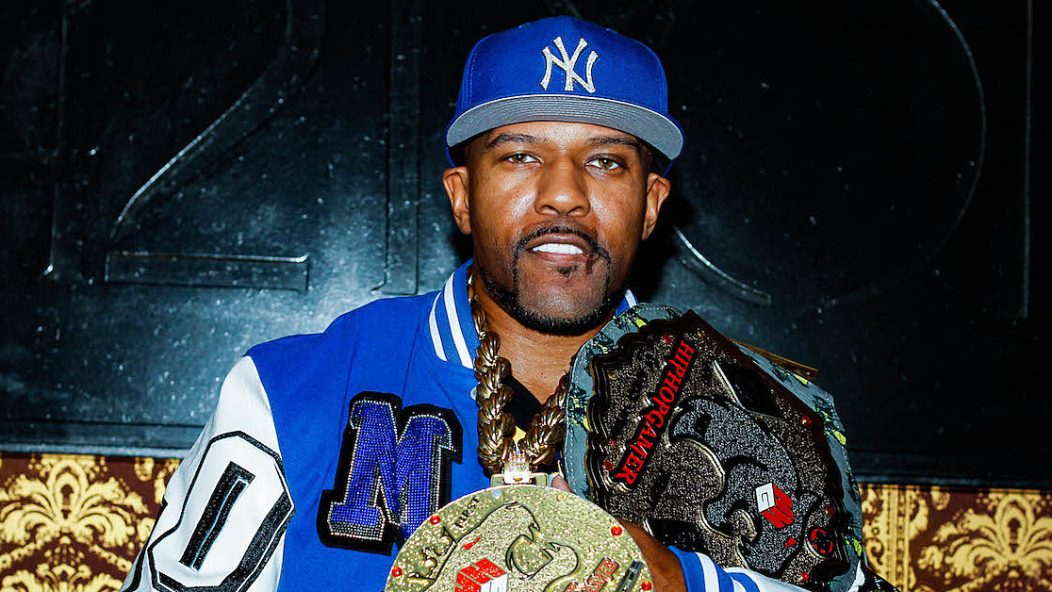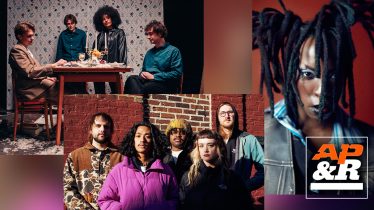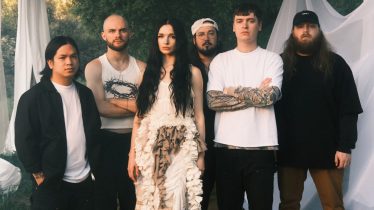
How YouTuber HipHopGamer turned a passion project into a hip-hop, gaming enterprise
In February 2020, the popular video game site USgamer published an opinion piece questioning why there was a dearth of Black gaming journalists in the ever-growing field of video game reporting. The piece, which correctly cited the disparity in hiring trends for Black gaming journalists and non-Black gaming journalists (especially in the face of the then-burgeoning Black Lives Matter movement and the global racial reckoning in the wake of the George Floyd murder), interestingly — and glaringly — made no mention of Gerard Williams. Known as the “GOAT of the game,” Williams is regarded as one of the pioneers in Black gaming journalism and has been putting his feet to the proverbial street since 2008 — a time when only 55 percent of all homes in the United States had adopted broadband connections, when YouTube was using as much bandwidth as the entire Internet combined, and when Grand Theft Auto IV and Gears of War 2 were competing to be America’s top video games.
Also read: How composer Bear McCreary wrote the captivating score to God of War Ragnarök
For the effervescent Williams, though, who goes by HipHopGamer, being overlooked is par for the course. “I’ve spoken about this before,” he said in a live stream in spring 2021, “but, if you go to Google and type in ‘top gaming journalists,’ certain names come to the top of the search list. And there’s a reason for that, several reasons, actually, chief amongst them being they’ve got backing that I don’t have. Whether it be they have a powerful agency, like CAA, or something like that, or an agent, a manager, a publicist, they’ve got it. I don’t have that. And many times, if these types of people think they can’t make money off you, they won’t work with you.”
Williams is on the phone as he’s jetting off to yet another event. Going to events — not just those involving gaming, but ones that marry his Holy Trinity of hip-hop, gaming, and culture — has become a part and parcel of creating the self-sustaining HipHopGamer machine. Currently, Williams also hosts a radio show on New York’s Hot97 where he interviews celebrities like John Cena and John Leguizamo, a television show on FinTechTV broadcasting live from the New York Stock Exchange, various live Twitch challenges with other gamers and live reviews of the newest video games, and special events at schools where he both speaks to, and engages, disadvantaged school children using the power of video games.
It’s the latter that are Williams’ favorite. “One of the things that I want to instill in kids is that your character is your currency,” he says. “Too often, the value is placed on material things, not on who they are as people. When I speak to these children, I use gaming challenges — some where they win actual money — and other real-life lessons that teach them empathy, community building, and independence. These are things that will teach them that we are all interconnected. That is what will help eliminate ignorance and trying to harm one another instead of helping one another.”
For Williams, that sense of community, as well as family, is what motivates him above everything else. When he’s not busy doing something for the HipHopGamer brand, he’s a devoted father. His son Marcus is following in his gaming footsteps — continuing a tradition that began with Williams’ late grandmother, Margaret, who introduced him to video games at just 4-years-old and who Williams frequently cites as his inspiration. Even his partner Tamika Moultrie is a Black gaming journalist with a sizable following of her own under the name RedInfamy. He considers them all important people in his “real life,” just as much as he does his “reel life” — and it’s this authenticity that he believes gravitates followers to him most.
“My followers” — which have a combined reach in the millions, when accounting for all social platforms — “are my followers because they know that since December 16, 2007, when I uploaded my first YouTube video, they see me be my authentic self. It doesn’t matter if I’m talking to the janitor or the CEO — I am me. Because of that, they felt like they could be themselves — I provided that safety, if you will, to be their authentic selves,” he says. “That sort of thing is important, especially for Black kids in the hood, during the time I grew up. At that time, it was all about getting girls, driving fast cars, and doing things of questionable legality to get money. But it’s how you got out of the hood, right? And that’s fine, but that meant people like me — Black kids who loved anime, Black kids who loved video games — had to hide who they were.”
Even when Williams could be his authentic self, he faced resistance, he says, especially in the beginning of his career. When he went to his first E3 Expo, a trade convention featuring a who’s who in the video game industry, he was told, flat-out, that he “didn’t belong here.” A potential talent agent, who represents the likes of Whoopi Goldberg and Denzel Washington, told him that they weren’t interested in working with him unless he had a larger social following, and there have been instances where he was denied entry into events, only to have access granted when other white journalists vouched for his credibility.
While these microaggressions are just several of many that still exist in the gaming industry that’s predominantly dominated by white men, Williams refuses to let this microcosm of larger societal ills get him down. And one can’t help but continue to root for him. Aside from having his presence inserted into such video games as NBA Playgrounds, he’s signed partnerships with companies like AMD and Logitech, and he’s branching out into the film and television industry in 2023. What’s more, Williams will be releasing new music soon — and he’s leveraging music as yet another way to expand the growing HipHopGamer brand into a full-fledged media empire.
Despite his embarrassment of riches, Williams insists he still has a lot to learn. It’s this humility, he says, that’s the key to his success. “You need to be humble,” he says. “You need to be consistent, too, with the why you do what you do. This is an industry that’s all about relationships — authentic relationships with key players — and so, being my authentic self around all the ‘right’ people are what makes HipHopGamer such a successful brand.”
“Too many people do what they see because they think it will work for them,” he says. “But that’s not it. You’ve got to know yourself, so you know what you can deliver. That is where your value lies.”








